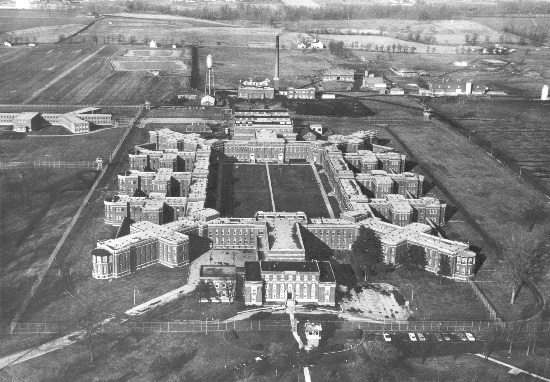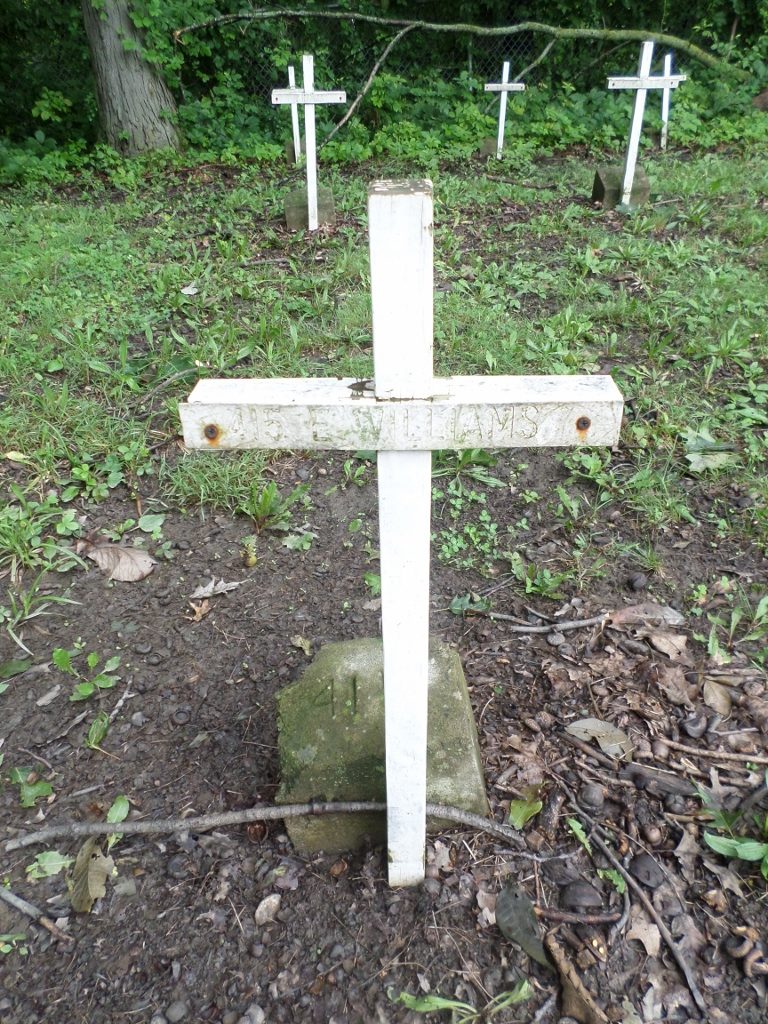
The murder of Benoni Swiger at the hands of Edmond (Edmund) Williams had dominated the headlines for what seemed like forever, to the local people. Finally, things were winding down and the people were about to hear Williams’ side of story. Could he be believed? Was he lying to save himself? Did he have no choice? The only one who knew the answers to those questions was Williams and God Himself and so far, neither one was talking. Now, Williams was about to take the stand and speak. It would be up to the people to decide whether to believe him or not, more importantly, it was up to the jury.
TRIAL RESUMED
When the afternoon session resumed, Edmond’s brother, Hiram Williams was reseated to the stand. He denied that he had heard Edmond say, “If I could kill three men, I would be satisfied.” Truth or not, the fact remained that no steps had ever been taken by anyone to commit Williams to a mental hospital where he might have received help.
When the prosecutor asked why Edmond Williams’ parents did not come to their son’s trial, Hiram stated that they did not have the money to do so.
F. L. Dodson of West Union then took the stand. He was acquainted with Williams and had known him for the past 12 or 13 yrs. He stated that he saw Williams at the home of H. L. Baker last fall a year ago. He sat there and paid no attention to Baker’s questions to him. He said that he thought Williams was ‘insane’. On cross examination, Dodson stated that he believed Williams did know right or wrong.
Frank Smith, who was a farmer, and who also lived at West Union, was next to take the stand. Smith said that he had know Edmond Williams since he was a small boy. In fact, Williams had worked for him. He said that he had last seen Williams in the fall of 1906 at the depot when he was leaving for Chillicothe. While talking to him, he said that Williams would sometimes just stop and stare. He finally just left because Williams was acting so peculiar.
H. L. Baker, who also lived near West Union took the stand. He stated that he had known Williams for about 20 yrs. and had actually boarded with him for a while. He confirmed what the others had said and added that he on occasion heard Williams talking to himself in his room at night.
Baker told of a time about two years previous when Williams came to his home while he was away and that it had scared his wife a great deal. Baker added that he believed Williams was in such a mental state that he did not know right from wrong at all sometimes.
H. C. Claypool, Probate Judge of Ross County and G. W. Ridgeway both testified but added little new facts.
Then, Dr. R. W. Holmes took the stand again and asked if he saw any marks of the face of Swiger. The doctor said he did not, but on the eighth day of the trial, Holmes took the stand again and testified there were powder burns on the left side of Swiger’s face and chin.
Mrs. Imogene Capple, one of the defendants’ witnesses, was subpoenaed to testify, but did not appear.
WILLIAMS TELLS HIS STORY
(It must be remembered that this is the testimony of someone accused of murdering another individual whom he had just spent the evening with. A man who quite possibly may have been incapable of distinguishing reality from his perceived reality. There is no way to know what really happened that night.)
At long last, the 42-year-old Williams took the stand to tell his story. He said that he had lived with his parents until he was 27 years old to help them work on the farm. Then on November 19, 1894, at 27 years old, he married 17-year-old Miss Frances Edwards and they had 3 children together, Bellvia 13, Mamie 12, and Hillary 10. He and his wife had separated twice. He said the 1st time they were separated for about 2 weeks and stayed together for about 2 years before separating for good. They had divorced about 8 years ago. He said that he kept the children after the separation. He said they were first at H.L. Baker’s home, that his wife paid them no attention. He then took them to his parents’ home, where they stayed some 7 years. During those years he did considerable lumbering work in the mountains in the adjoining counties.
According to Williams, the revolver was purchased while he was working on the B&O Railroad while coming from Salem, WV. He explained that while at Salem, he went to a saloon to get some whiskey and showed some money. When he went out, he saw 2 men follow him. He hid in a hollow for a while until he saw the men pass him and later returned to Salem. The next time he came home, he purchased a revolver, mainly to defend himself. Williams identified the revolver and said that he pawned it to Jesse Ash at one time to come to Chillicothe for $10. He went on to say that he had moved with his children to Hallsville for about 9 months. Then, returned to West Virginia where the children moved in with his parents for about 2 years.
It was then that he moved to Chillicothe in July of 1907. The children came later. He met the children when they arrived and took them to his rented home on Vine Street.
Williams testified that when he first saw Benoni Swiger, he had passed up the street and was coming back. Met him at the gate with the children. They shook hands and returned in the day. Swiger was there about eight or ten days. He said Swiger came to Ohio as he had been subpoenaed to Clarksburg, WV to indict a man for selling whiskey. He had been given $20 to get out of the way and not testify. Swiger had said also that he had come to purchase property and further said he had been sued again by his wife for divorce.
According to Williams, he thought nothing about Swiger coming to visit at first. But after hearing some of the stories that Swiger told, he began to feel like Swiger had come to harm or kill him. Swiger slept on a mattress on the floor with his clothes on. He did not know if he was armed or not. Williams feared that he may have had a revolver.
He went on to say that back home in WV about 4 or 5 years ago, Swiger had told him that if someone would put his wife out of the way, he would give him a bunch of money. His wife had brought suit against him and tied up his money.
Williams said that he was not friendly to Swiger, but that “he had treated him right.” They went to May’s because Swiger wanted to go. Then went on the traction line to Hopetown, and then walked the remainder of the way. He said they got on at Delano to return home. He thought that Swiger was as well as usual and the returned home before dark. They went into the kitchen and then to the shed for coal and kindling. The children were getting supper.
Williams said that he later noticed that his daughter, Mamie, seemed to be drunk. He knew that he had not given her anything. He took her out into the back yard. Belvia told him Swiger gave it to her sister. He gave her salt water and she got sick and threw up. They were out about 15 minutes. Then went back into the house and into the bedroom directly from the yard.
Swiger was sitting at the kitchen table reading. The lamp was on the table. Swiger showed no interest in Mamie’s sickness and never said a word until Williams asked him, “Why the h— he gave the child whiskey.”
Williams said he opened the window to give Mamie some air. While standing at the window, Mamie tried to throw up again. Then, he carried her to the bed and laid her there.
Williams said the more he thought about it the more upset he became. He went to the bedroom door and repeated, “Why the h— did you give her whiskey?”
According to Williams, Swiger said he would “do as he d— well pleased.” Then, started toward Williams. He turned around and picked up the revolver off the bed and fired the shot.
Judge Bitzer asked Williams if he was able to distinguish right or wrong at the time. The prosecutor objected and the matter was discussed at length. The prosecutor withdrew his objection and Williams answered, he could not help doing what he did. He was incapable of distinguishing between right and wrong and was not sane.
Williams denied when he was in the yard, he had stated he was going to shoot Swiger and that he had his revolver out. He also denied that he made a threat against Swiger, as testified to by Ira Baker. He admitted that he had had the talk with Rebecca Williams, to which she testified, and made a threat against Swiger, but did not mean it. He denied both William Ashburn’s and Otia Edwards testimony. In fact, he denied all the other testimonies and threats that the state’s witnesses had given.
Williams went on, saying that after the shot was fired, he went into the kitchen and asked Belvia what she had done with the lamp. She said it was on the kitchen floor. He got it and lit it, then got the children ready and left. He said it was not light in the bedroom at any time before or after the time the shooting occurred.
Mamie was still sick and weak when they left. They went on up Vine Street and out the pike. Mamie had to be carried. They stopped for the night in a cornfield. Williams put his children to bed in some corn fodder. Then laid more fodder on the top of them to keep them warm. Williams’ final statement of the day was that he knew Swiger carried a knife.
The defense stated in conclusion that the defense would be based upon self-defense and temporary insanity.
Edmond N Williams was convicted of murder in the first degree by Judge Willis H. Wiggins in the common pleas court on Jan. 5, 1909. He stood up to receive his sentence of life in prison without the possibility of parole. He seemed unmoved by the gravity of his crime. By agreement of counsel for both sides, the motion for a new trial was submitted without argument, and after having been read by Judge Wiggins, was overruled, the court going into detail as to the grounds for the overruling the decision. He stated that he was convinced that Williams had as fair a trial as he could have been given and that Williams did not want another trial.
Still, when the judge asked Williams if he had anything else to say, Williams replied, “Yes, I have. It’s all false. The verdict is false.”
Williams then consulted with his attorneys and finally arose. He walked back to the jail surrounded by Sheriff Swope and his 2 deputies, Spencer, and Logan where he was closely watched for fear of a suicide attempt before he could be taken to Columbus.
In 1911, Williams was later declared to be insane and was sent to the Lima Hospital for the Criminally Insane. He was a good patient and was allowed to work on the hospital farm.
In late September or early October, Williams escaped from the hospital and walked the entire distance in order to see his family again. He arrived at his brother’s home near Smithton (now Smithburg). The authorities were promptly notified, and he was taken back into custody by J. Henderson, supervisor of the hospital for the insane at Lima, OH and Doddridge County Sheriff, Eli Nutter.
Edmond Williams died on December 31, 1939, at the Lima State Hospital of cancer. He was buried in the hospital cemetery. He was 72 years old.


God Bless.
Patricia Richards Harris, President
Doddridge County Historical Society

